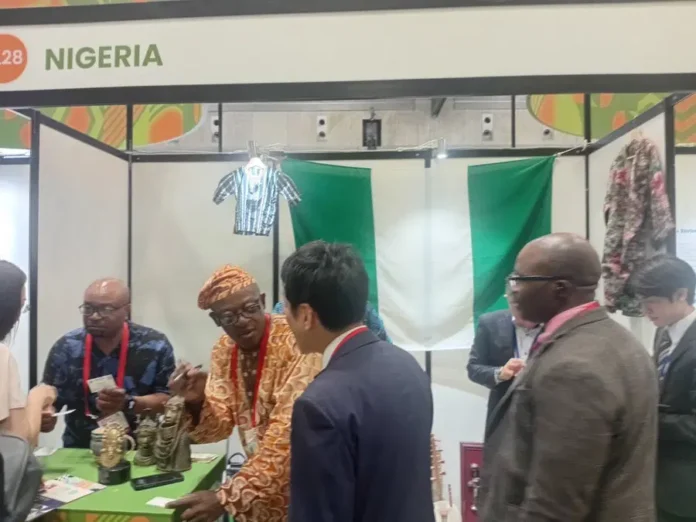TOKYO: Nigeria has reiterated its determination to strengthen strategic partnerships with Japan and other international allies at the Ninth Tokyo International Conference on African Development (TICAD 9), held in Yokohama, Japan.
Mr. Bolaji Tunji, Special Adviser on Strategic Communications and Media Relations to the Minister of Power, disclosed this in a statement issued Friday in Abuja.
He said the Nigerian delegation, led by President Bola Tinubu, engaged in high-level discussions focused on power, infrastructure, and industrial transformation as key drivers of sustainable growth.
According to him, President Tinubu emphasized that Nigeria’s presence at TICAD 9 was not for trade exhibitions but to forge outcome-driven partnerships that would deliver measurable benefits to Nigerians.
He stressed that the country was moving deliberately from planning to implementation, from agreements to delivery, and from promises to result.
The Minister of Power, Chief Adebayo Adelabu, who was part of the delegation, also held strategic talks with Japanese stakeholders, including Toshiba, Hitachi, the Japan Transmission & Distribution Corporation, and the Energy Exchange Corporation.
Discussions centered on strengthening Nigeria’s transmission infrastructure, improving operational efficiency, and reducing system losses.
Adelabu explained that these talks were anchored on the recent Federal Executive Council’s approval of counterpart funding of ₦19.08 billion to unlock a $238 million loan facility from the Japan International Cooperation Agency (JICA). The facility will support the expansion of Nigeria’s national grid, including:
-
102.95 km of new 330kV double-circuit line
-
104.59 km of new 132kV double-circuit line
-
Four 330/132/33kV substations
-
Two 132/33kV substations
-
Several line bay extensions and a new 132kV substation
In addition, Nigeria is advancing a $190 million renewable energy loan facility, also backed by JICA, to scale distributed renewable energy solutions across underserved communities.
The initiative complements the recently launched $750 million World Bank–supported Distributed Access through Renewable Energy Scale-up (DARES) programme, designed to provide clean and reliable power to over 17 million Nigerians.
Adelabu further disclosed that three JICA-funded substations, valued at $32 million, are set for commissioning in Apo (FCT), Keffi (Nasarawa State), and Apapa (Lagos State).
These facilities will enhance power supply reliability for households, businesses, and industrial hubs, including Lagos Port.
He also highlighted JICA’s support in capacity-building through the National Power Training Institute of Nigeria, where state-of-the-art training equipment has been inaugurated to boost the technical skills of engineers and promote long-term sustainability in the power sector.
Speaking at a TICAD panel session themed HICKARE Africa: Harnessing Innovation, Co-creation, and Knowledge for Accessible and Resilient Energy for Africa, Adelabu underscored Nigeria’s current energy realities, noting that only about 55–60 percent of the population has access to electricity, much of it unreliable.
The minister said the government was bridging this gap by expanding grid coverage in urban areas while accelerating off-grid solutions such as solar mini-grids and standalone systems for rural and peri-urban communities.
He acknowledged challenges, including limited access to affordable capital, high costs for rural households, and underutilization of productive use equipment.
Despite these obstacles, he affirmed Nigeria’s commitment to supportive policies, private-sector partnerships, and local manufacturing of renewable energy components.
Adelabu commended JICA and the Government of Japan for their long-standing partnership, describing JICA as a reliable ally in Nigeria’s energy transition and development.
He expressed optimism that bilateral cooperation would deepen, particularly in renewable energy, capacity-building, and infrastructure development.



